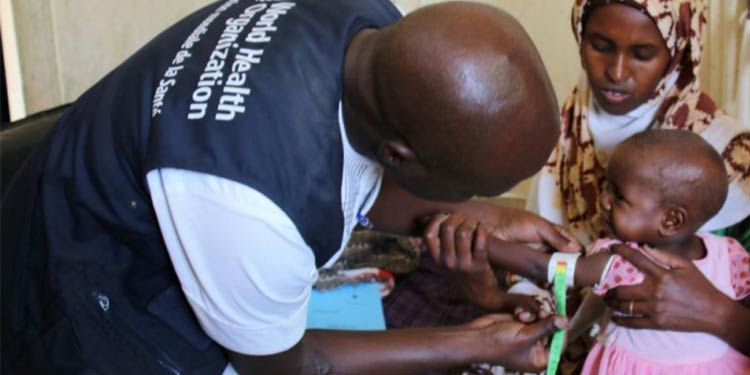
The new guideline was launched on June 25th, 2019 by Dr Lia Kebede, State Minister of the Federal Ministry of Health, who noted that “nutrition is now getting the attention it deserves.”
The launching ceremony in Addis Ababa was attended by government officials from Federal and Regional Health Bureaus, NGOs, the donor community and representatives from United Nations agencies.
Following the launch, regional important persons received a technical briefing and developed action plan to make sure that proper involvement for acute malnutrition will be given to due place in the work plans of their respective areas.
“We launched the first ever Food and Nutrition Policy in 2018, and today we are assembled here for another very important milestone, to launch the new and updated guideline for management of acute malnutrition; the guideline which is expected to benefit children and mothers greatly when properly executed”, Dr Lia Kebede said.
The guideline replaces the 2007 protocol for management of acute malnutrition, and is based on the 2013 WHO global recommendation for the management of severe acute malnutrition.
The new guideline provides structured guidance for frontline health care professionals on how to care for those affected by acute malnutrition. It includes evidence-based revisions for using routine drugs for malnourished children, sensitive admission and discharge criteria for nutrition programs, and incorporation of the management of average acute malnutrition into health facility services.
The whole spectrum of care for malnourished children is covered, including in-patient therapeutic management in stabilization centers, out-patient therapeutic management, supplementary feeding programs, and community-level involvement and engagement in the prevention and identification of malnutrition.
The WHO Representative in Ethiopia a.i., Dr Aggrey Bategereza, said, “”With the revised guideline, we will be able to recognize children with acute malnutrition earlier and provide them with an improved quality of care.”
He further added that achieving the desired goals requires a collaborative effort from all partners, and emphasized that WHO will support the roll-out and implementation of the new guideline in collaboration with other stakeholders.
It also provided resource materials such as job aids on the in-patient management of SAM which were incorporated into the guideline.
WHO as technical lead is also playing its role in the development of training materials for the guideline and promoting health and supporting successful development in Ethiopia.
